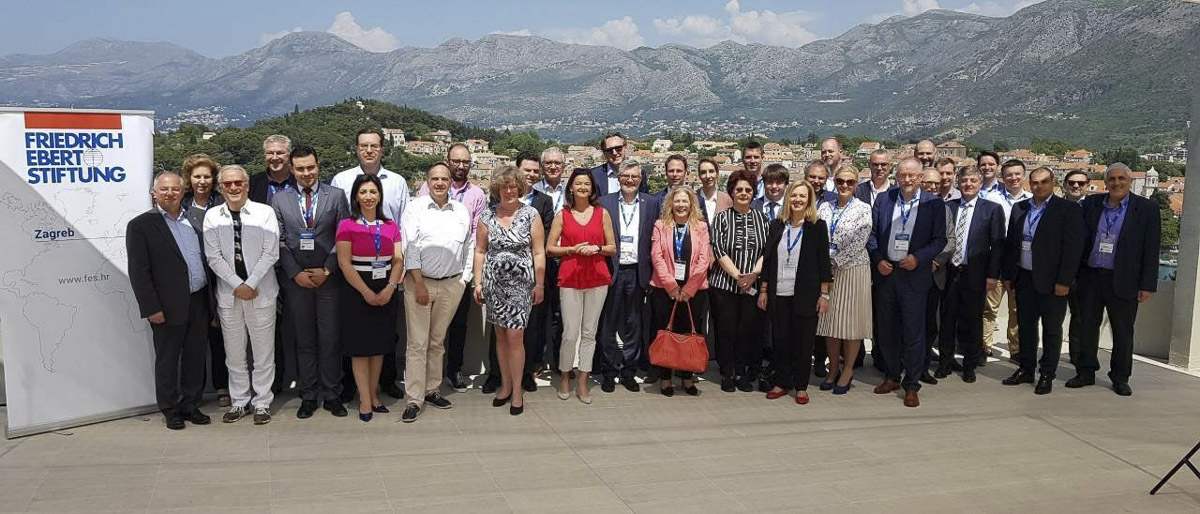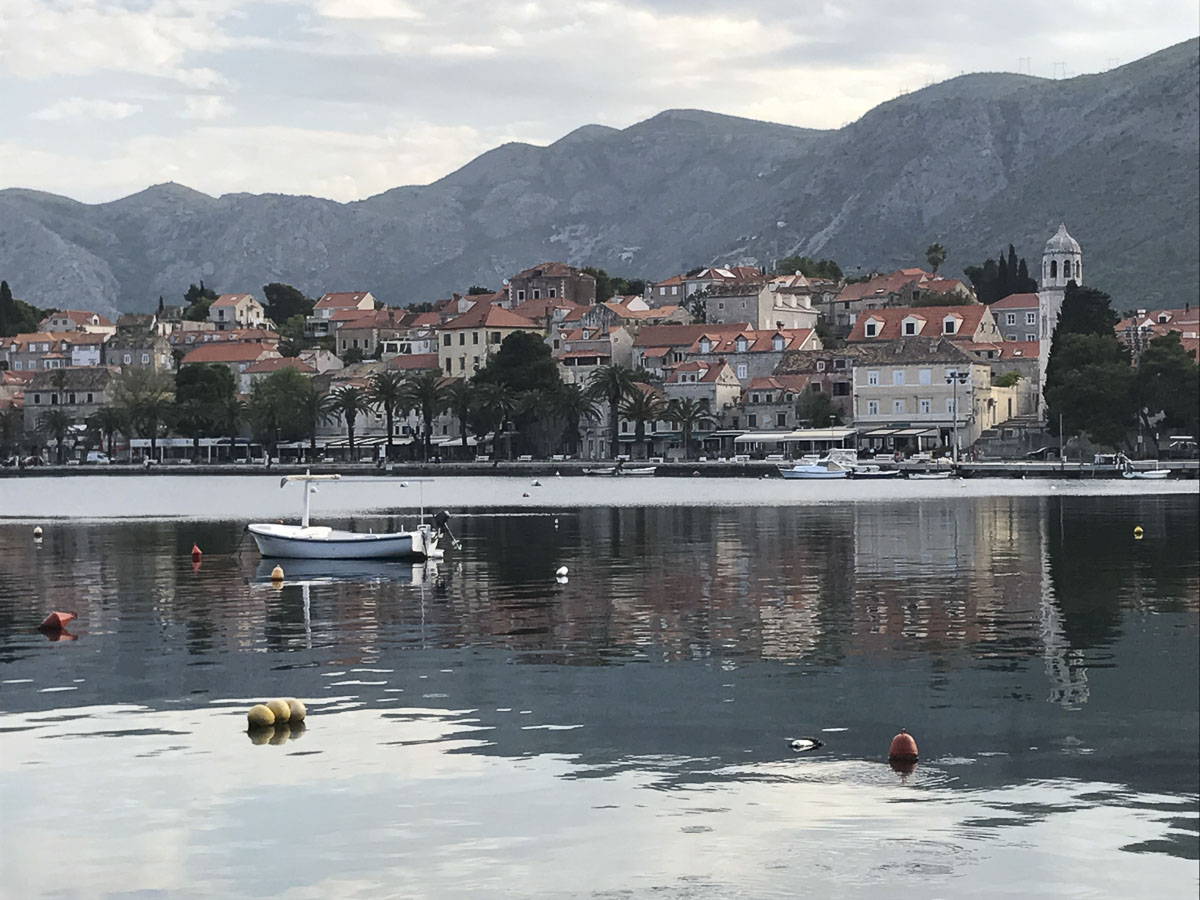WESTERN BALKANS IN TIMES OF LOW DYNAMICS
I was happy to have been invited by the Friedrich Ebert Stiftung Zagreb to participate in and to speak at a conference in Cavtat. This conference has a long tradition and I participated years ago several times. End of April is a good period to go to that small village near Dubrovnik. Tourism is already strong but not overshadowing the beauties of the landscape and of the old town centre of Dubrovnik. The water is extremely clean and one can see many fishes. But already now one can imagine how tourism will spoil the area in the high season.
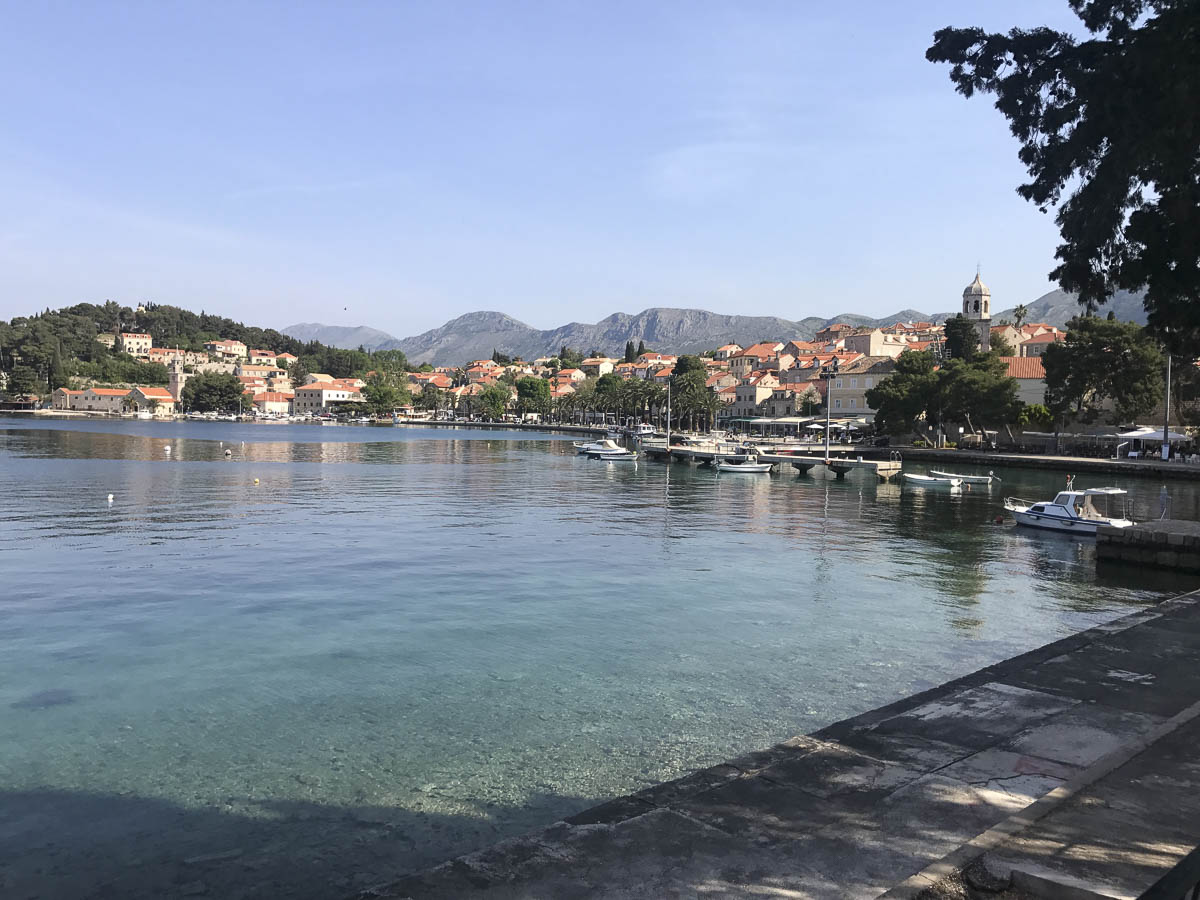
It was nice to see some of my former colleagues (for example Tanja Fajon and Knuth Fleckenstein) from the European Parliament and „old“ and new representatives from the Western Balkan countries. In spite of the sunny days and the good mutual understanding the discussions were characterized rather by pessimism and only few glimpse of hope. Again I tried to develop some ideas how to bridge the gap between now and a possible accession for the different countries of the region. These proposals should also have the effect of reducing the frustration of the citizens due to the lack of progress towards EU membership.
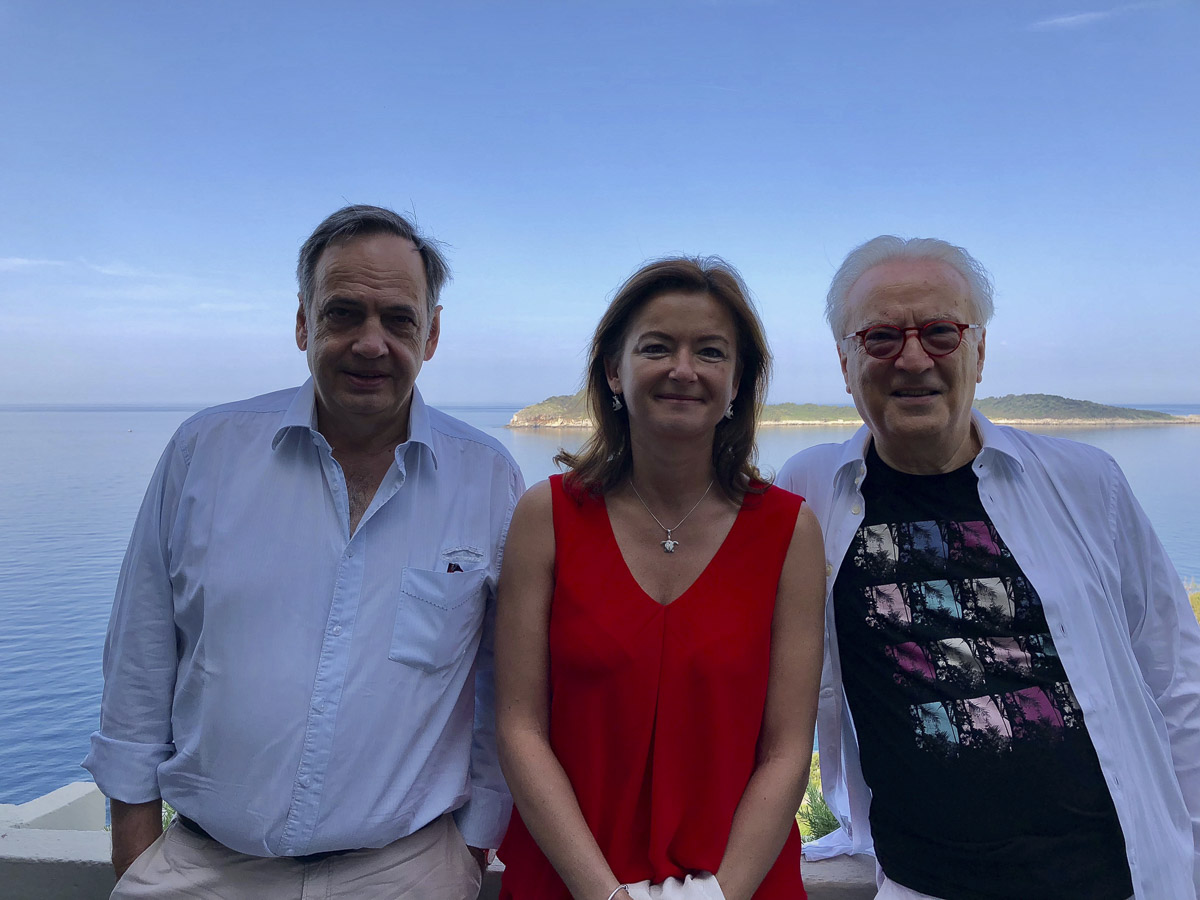
I invited my former colleague Maria Elena Koppa from Greece – who is now professor at Athens University – to work on these proposals and so we want to draft a common paper for a wider discussion with people responsible for the enlargement process in the EU no in the Western Balkan countries. The actual approach of the EU including the recent EU Commission reports are not addressing some of the main issues of today’s stalemate. We think we must find ways to overcome it without dropping the main criteria for accession.
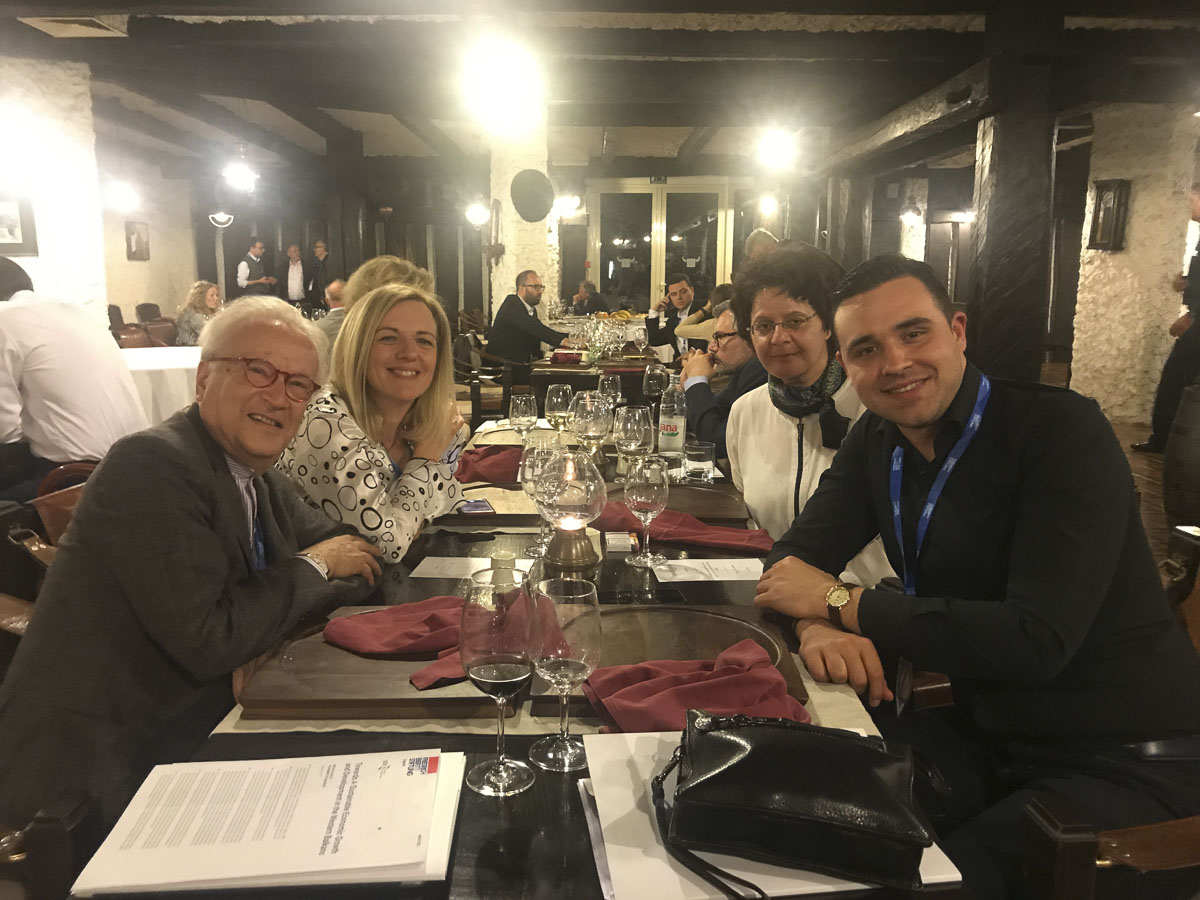
EU is neither in reform nor enlargement mood
Neither the EU as such nor the accession of the countries of the Western Balkan is characterized by a strong dynamic. Domestic issues and especially the fear from right wing populist forces are reducing the courage of European politicians to think about deepening and enlarging the European Union. Nobody today uses the often expressed sentence that the EU is like a bicycle, once you stop moving the pedals, you will fall down. And few responsible politicians argue why we need common European strategy in defending the the interest of our citizens. Now we are in a stage of fragile stability – or stable fragility – in spite of proposals predominantly from Emmanuel Macron. These proposals deal mostly with strengthening the Eurozone and the economic and social stability of that core of the EU. Enlargement is not a big issue. And it was significant, that President Macron in his last speech in front of the European Parliament didn’t mention the future accession of the Western Balkans at all.
Western Balkans needs reform impetus
In the Balkans itself things are also moving slowly, we can speak of a fragile stability as well. Reforms are not characterized by high dynamics. Maybe Albania and Macedonia are an exemption. The economic growth did catch up but unemployment stays high as does emigration. And especially the emigration the well educated is a problem for the countries of emigration no not so much of immigration. In addition expectations concerning accession to the EU are decreasing. And rightly so. Things do not go as quickly as promised and it is mainly (!) due to the lack of reforms or at least low speed of reforms in the different countries.
New (or renewed) players in the region: Russia, Turkey and China
So overall the EU itself and the region of the Western Balkans are in slow move/mood and that has a fragile stability as result, which invites others to fill the gap. And there are others who are eager to increase their influence. These „others“ are Russia, Turkey and also China. Without some strong initiative and a new take off, the influence of these countries will grow.
Russia has no overall strategic plan to be the dominant power in the region. But President Putin does everything what can be done to torpedo the enlargement of the EU – or NATO. This is especially true for countries like Serbia but also Montenegro, Macedonia and the Republika Srpska inside Bosnia-Herzegovina. Turkey with some sort of new-ottoman foreign policy under President Erdogan wants to extend its influence and start where the Ottoman Empire had to leave. The activities of the Gulen movement in this region is in a special focus of President Erdogan and that started even before the failed coup. China has for the movement predominately economic interests it pushes forward. But already now they link economic investments to some political demands, for example in order to soften criticism – of the EU – of Chinese human rights and democracy violations.
A region of global competition
The Western Balkans became a region of global competition with the US mostly not much interested and no longer ready to engage itself strongly. So only the European Union is left for countering influences by powers with a radically different political approach. It is with all differences between Russia, China and Turkey an approach which is not concerned with human and civil rights and not interested in overall security for Europe. Turkey is still member of NATO but as we can see with its activities against Greece not very much concerned about solidarity inside Europe or even in its neighborhood. China has no stake in European security and Russia, at least President Putin has a different conception of European Security as we can also see in the framework of the Ukrainian crisis.
These different influences and interests may counterbalance each other, but for the moment they can live together well and may even support each other. That may be specially true, if we think about the alliance between the Presidents Putin and Erdogan in spite of different interests in Syria. Even if all these influences are only spoiling the accession process and do not prove to be an alternative, it can create insecurity and uncertainties with the citizen if the Western Balkans.
Slow accession process leads to widespread frustration
Well, it is unrealistic to ask the EU for quick membership of the countries of the Western Balkans. Even a membership in steps beginning with few rights and obligations which could be extended for those countries which do the necessary reforms is hardly feasible. Many citizens on both sides would not understand the different stages with its different rights and obligations at different levels of membership. But some steps into that direction are possible and should be thought about.
Stronger economic links to EU and new regional initiatives
Economically it would be wise to transform the Berlin process which is for the moment a process of some EU members with the Western Balkans into an economic cooperation in the framework of the EU as such with a special role for the EU Commission.
The extension of the infrastructure, the establishment of a digital economy „Silicon Balkans“ are Community issues not bilateral between some EU countries and the Western Balkans. In some countries like Serbia there exists already a lively and successful digital economy but it should be extended to comprise the whole region.
It would also be highly welcome if some of the financial assistance for EU member countries like the structural funds would be available for the candidate countries in the Western Balkans. This could be very helpful to bring the economies forward. Of course a stringent control to prevent corruption would be necessary, but that is also true for the EU member countries.
EU – Western Balkans Security Community
Politically, security issues are of special interest for both, the EU and the Western Balkans. If one looks to the recent enlargement document of the EU Commission the priority for security issues is clearly visible. Also opinion polls and the last elections in EU member countries demonstrate a strong interest of the citizen in strengthening security. One fear is, that enlargement is rather decreasing and not increasing security. Security can only be dealt with today in a cooperative way and not isolated. Hard – military – security is dealt with inside NATO.
Other issues of security – „soft“ security from terrorism via trans-border crime like trafficking of arms and drugs to control of a the outside-Schengen-border against illegal migration need mutual information and trust, but also close cooperation and common measures. An EU-Western Balkan Security Community could strengthen that cooperation and could make it clear where the security interests of these countries are best saved and protected.
Where to find a secure/security home must be clear
Such a Community would and should not prevent close and mutually fruitful cooperation of the region – and of the EU – with Russia, China and Turkey. Connectivity is an important contribution for preserving peace and promoting well being. But as Russia is building up and extending a Eurasian Economic Community so the EU should „finalize“ its enlargement process in the Western Balkans. In the interest of certainty and security the EU and the Western Balkan countries should decide now(!) which way they want to go and they should send clear and unequivocal signals to all actors in the region. Declarations are good, but action is much better, especially in such important fields like security.
No bargain membership
Enlargement is a long process and membership cannot be given at a bargain. On the contrary, we have in the EU a big problem due to weak possibilities to sanction member countries for measures and violations for which we would criticize strongly candidate countries. But the answer can’t be to reduce the requirements for joint the EU. So we need a strategy for bringing the gap between the frustrating waiting time and the formal accession as full member.
EU and Western Balkans institutional links not a substitute for accession.
Any organizational measure of strengthening the link between the EU and candidate countries before accession may be interpreted as substitute for membership and not as preparation for it. But the alternative is a long and frustrating waiting time, increasing despair and increased activities of Russia, Turkey and China. So we need to go parallel: the individual accession track must be accompanied by closer – multilateral – ties now.
